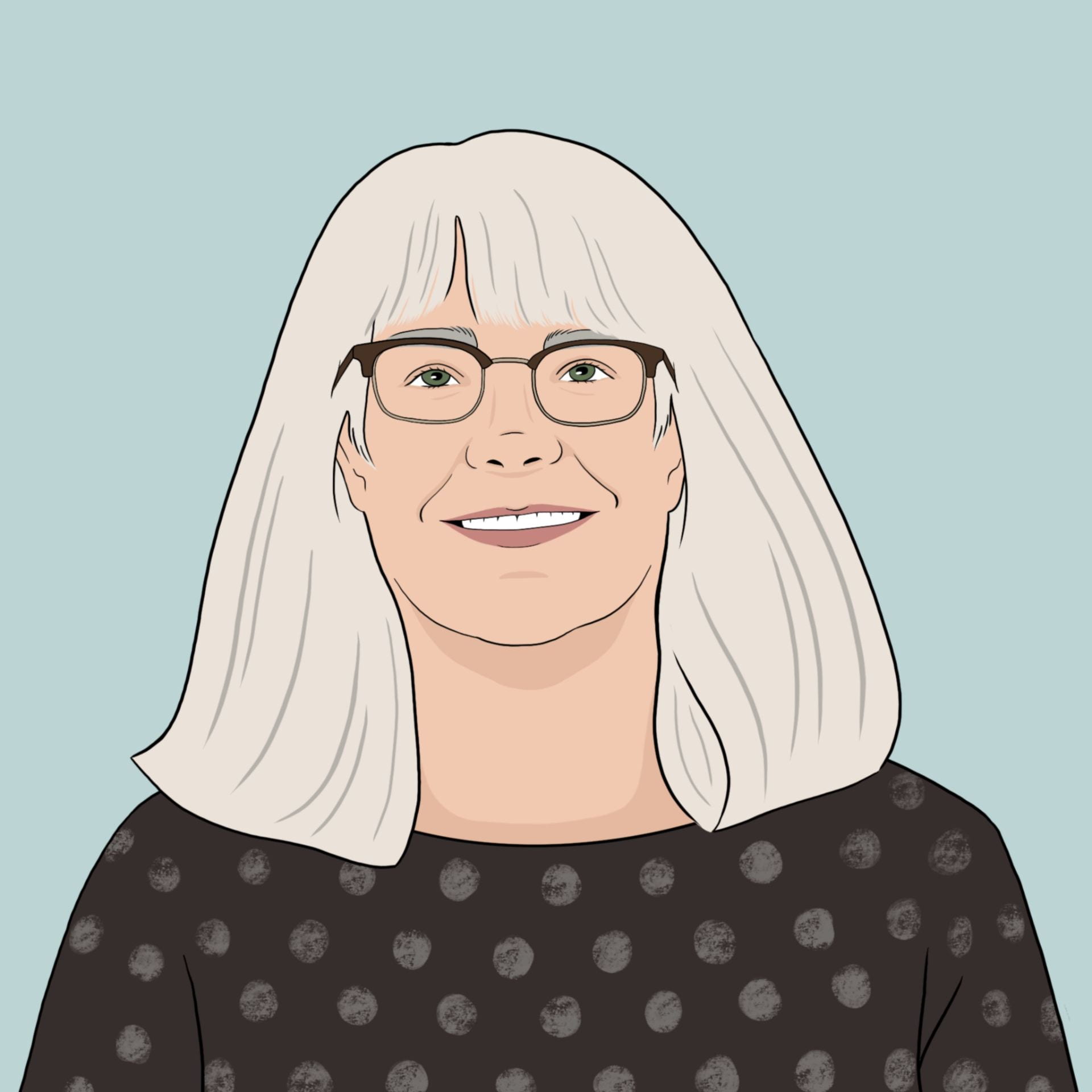Leadership
Director
Alaí Reyes-Santos, Ph.D., is the Director of the Mellon-funded PNW Just Futures Institute for Racial and Climate Justice, and Director of Community Engagement for the new Climate Solutions Center at University of Oregon. She teaches as a Professor of Practice at the University of Oregon School of Law and is an independent scholar and consultant. She is the founder of ACC, a BIPOC-led consulting firm that facilitates organizational transformations and community engagement in the non-profit sector, government, higher education, and social and environmental organizations. ACC is currently a named partner in the Environmental Justice Technical Assistant Center, funded by the Environmental Protection Agency (EPA) to serve Region 10. Dr. Reyes-Santos is also the founder of the ceremonial space Ilé Estrella de los Mares, and is the author of Our Caribbean Kin: Race and Nation in the Neoliberal Antilles (Rutgers 2015), Sanadores (Buho 2021), and articles, essays, and op-eds published in a variety of venues.
In addition to leading various community-centered projects and being the recipient of several teaching awards, Dr. Reyes-Santos co-leads the digital humanities project Caribbean Women Healers: Decolonizing Knowledge Within AfroIndigenous Traditions (2020) which showcases interviews with healers, ethnobotanical resources, and curriculum and bibliographical resources (healers.uoregon.edu). It is being re-conceptualized to include Indigenous and Black healers and traditional ecological knowledge keepers in the U.S. Pacific Northwest.
Dr. Reyes-Santos has played a key role in water justice in the State of Oregon. In 2023, she collaborated with the Oregon Water Futures Collaborative, the Water Justice Network, and the Racial Justice Council at the Office of the Governor to secure 500,000 for an award program for water justice communities-the first ever of its kind. This grant will be distributed by University of Oregon’s JFI to various communities to conduct water justice work. As a founding member of the Oregon Water Futures Collaborative, she continues to contribute to the articulation of a water justice agenda in the state and nationwide. Two co-authored publications have emerged from OWF’s community engagement: Oregon Water Futures: Community Engagement 2020-2021 and the Water Justice Framework found at www.oregonwaterfutures.org. These have been engaged by community-based organizations, state and federal water initiatives, as well as law and policy making processes.
She is a high priestess and tradition keeper of Caribbean Regla de Osha and regla conga, an Afro-descendant ceremonial practice that survived through cross-cultural exchanges in the islands; and supports efforts to revitalize Afro-Indigenous Caribbean traditional ecological and medicinal knowledges. Her pedagogical practice draws from her ceremonial training in order to foster open conversations about social violence, power, and solidarity.
For publications and projects, see www.alaireyessantos.com.
Co-PI
Stephanie LeMenager, Ph.D., is Barbara and Carlisle Moore Professor of English and Professor of Environmental Studies at the University of Oregon, where she co-directs the Center for Environmental Futures and is the Co-PI for the PNW Just Futures Institute for Racial and Climate Justice. Her publications include the books Living Oil: Petroleum Culture in the American Century (2014), Manifest and Other Destinies (2005), and Environmental Criticism for the Twenty-First Century (2011). Her co-edited collection Teaching Climate Change in the Humanities addresses climate change pedagogy and her co-edited Bloomsbury four-volume collection, Literature and Environment: Primary and Critical Sources, offers a history of the interdisciplinary field of the environmental humanities through the one hundred most influential published articles in the field. LeMenager is a founding editor and current advisory board member of Resilience: A Journal of the Environmental Humanities, the first Environmental Humanities journal to be based in the United States. She is a recent recipient of the Radcliffe Institute Fellowship for Advanced Study, where she began writing her latest book, about climate change, fiction, and lies. Her work has been featured in The New York Times, Time magazine, Climate Wire, and on CBC radio and NPR.
Co-PI
Marsha Weisiger, Ph.D., is the Julie and Rocky Dixon Chair of U.S. Western History and an Associate Professor of History and Environmental Studies at the University of Oregon, where she co-directs the Center for Environmental Futures and is the Co-PI for the PNW Just Futures Institute for Racial and Climate Justice. Her scholarship focuses primarily on the environmental history of the American West. She is the author of Dreaming of Sheep in Navajo Country (University of Washington Press, 2009), which won four awards, including the Norris and Carol Hundley Award and the Hal Rothman Book Award, and Land of Plenty: Oklahomans in the Cotton Fields of Arizona, 1933-1942 (University of Oklahoma Press, 1995), which won the Angie Debo Prize. She has also written on wolf reintroduction, gendering environmental history, environmental justice, and architectural history. Her work has received two faculty research fellowships from the National Endowment for the Humanities, a Burkhardt Fellowship from the American Council of Learned Societies, and a King Fellowship from the Clements Center for Southwest Studies. She is a Distinguished Lecturer for the Organization of American Historians, the past president of the Pacific Coast Branch of the American Historical Association, and co-founder and co-coordinator of the Cascadia Environmental History Collaborative.
Co-Advisor
Mark Carey, Ph.D., is a Professor of Environmental Studies and Geography, and currently serves as Director of the Environmental Studies Program. He specializes in environmental history, environmental justice, and science and technology studies (STS), though he generally works through interdisciplinary collaborative teams to analyze societal aspects of climate change, glaciers, icebergs, natural disasters, and water in high mountain and polar regions. At the UO, he runs the Glacier Lab for the Study of Ice and Society and co-directs the Climate Change and Indigenous Peoples Initiative with Kathy Lynn. He is finishing a book on icebergs and society in the North Atlantic and has several other ongoing projects funded by the Andrew Mellon Foundation and National Science Foundation on climate justice in the Pacific Northwest, Greenland glacial fjord communities, and glacial lake outburst floods in the Andes. He received the King Albert Mountain Award and the Elinor Melville Prize for his book In the Shadow of Melting Glaciers: Climate Change and Andean Society. He strives to collaborate and co-author with his undergraduates, graduate students, and postdocs – all part of his devotion to advising, mentoring, and teaching.
Co-Advisor
Laura Pulido, Ph.D., is the Collins Chair and Professor in the Department of Indigenous, Race, an Ethnic Studies. She studies race, landscape, environmental justice, and cultural memory and is the author of numerous books, including Environmentalism and Economic Justice: Two Chicano Struggles in the Southwest (University of Arizona, 1996) and Black, Brown, Yellow and Left: Radical Activism in Los Angeles (University of California, 2006) and A People’s Guide to Los Angeles, with Laura Barraclough and Wendy Cheng (University of California, 2012). Most recently she and Jordan Camp posthumously completed Clyde Woods’s Development Drowned and Reborn: The Blues and Bourbon Restoration in Post-Katrina New Orleans (University of Georgia, 2017). Laura has received numerous honors, including the Presidential Achievement Award and Distinguished Scholarship Honors from the Association of American Geographers; the Cullum Medal from the American Geographic Society, and Ford and Guggenheim Fellowships.
Founding Director
John C. Arroyo, Ph.D., AICP, is Assistant Professor of Urban Studies and Planning and Chicanx and Latinx Studies at the University of California San Diego. Prior to his appointment at UC San Diego he was Assistant Professor in Engaging Diverse Communities (with affiliations in the departments of Indigenous, Race, and Ethnic Studies and Historic Preservation) at the University of Oregon, where he was also Founding Director of the Pacific Northwest Just Futures Institute for Racial and Climate Justice – the largest social science and humanities grant awarded in UO’s history. Previously, Dr. Arroyo was an Andrew W. Mellon Foundation Fellow in Latino Studies at the School for Advanced Research in Santa Fe, New Mexico. Arroyo received his doctorate in Urban Planning, Policy, and Design from MIT. He is a national expert on the social, political, and cultural dimensions of Latino/a/x-centered built and natural environments (specifically housing, ethnic retail corridors, and transportation), urban design practices in emerging gateways, and arts and cultural planning. His scholarly and applied research has been published in the Journal of the American Planning Association, Journal of Planning Education and Research, Planning Theory and Practice, Cityscape and featured on national media outlets such as the Los Angeles Times, NPR, and U.S. News and World Report. He has raised nearly $5 million through competitive grants and prestigious fellowships supported by American Association of Hispanics in Higher Education, American Planning Association, the Mellon Foundation, National Endowment for the Humanities, National Research Council/Ford Foundation, the National Trust for Historic Preservation, and the Whiting Foundation. Dr. Arroyo currently serves on boards of the Public Humanities Network of the Consortium for Humanities Centers and Institutes (CHCI) and the School for Advanced Research (SAR). A certified planner, he has over 25 years of experience working with various arts and urbanism-related nonprofits, foundations, and government agencies in research, grantmaking, and technical assistance capacities across the US, Europe, Latin America, and the Caribbean. The son of Mexican immigrants, his commitment to social justice and equity is rooted in being born and raised East L.A.
Administrative Team
Grant and Research Administrator
Alayne Switzer is the Grant and Research Administrator for JFI. She has worked at the University of Oregon for over 21 years in various roles on campus and is a Certified Research Administrator. Alayne is a third culture child having been born and raised abroad living in seven different countries before moving to the United States. This global experience has molded Alayne into a fierce advocate for global equity and just futures.

Coordination Graduate Employee
Nadya Barba Ramirez is a concurrent Juris Doctor (JD) and Master of Public Administration student within the University of Oregon School of Law and the School of Planning, Public Policy, and Management (MPA), respectively. She is a Coordination Graduate Employee (GE) for the PNW Just Futures Institute for Racial and Climate Justice. She received her Bachelor of Arts in Political Science and International Studies, with a minor in Economics from the University of Utah. Her previous work includes local, state, and federal government offices, as well as community outreach within the private sector. She has additionally worked with various non-profit and community organizations focused on immigration, voter registration, education, and underserved populations.
Illustrations by Rachael Sol Lee
Project Team Members
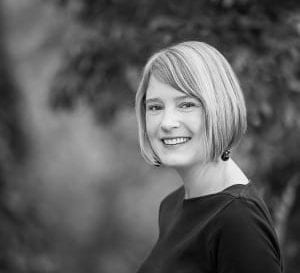
Sarah Stoeckl, PhD is the assistant director in the UO Office of Sustainability with over a decade of experience in program and project management for non-profits, tech companies, and universities. She is committed to environmental concerns and issues, particularly those focused on the intersection of environmentalism with social justice and food ethics, as well as reversing climate change with a particular interest in its affective consequences. At UO Sustainability she manages the office’s academic and community outreach and engagement programming. Sarah did her PhD work at UO in English Literature. Her research focused on how narratives after the First World War manifested but failed to resolve trauma and grief, with an overarching curiosity about the cultural and affective consequences of rupture, change, and traumatic events. With the JFI, Sarah manages the Sustainability Fellows program, created the Partnership Pedagogy toolkit website to support community-engaged learning and participatory action research, and co-manages the Atlas of Essential Work project with Stephanie LeMenager.
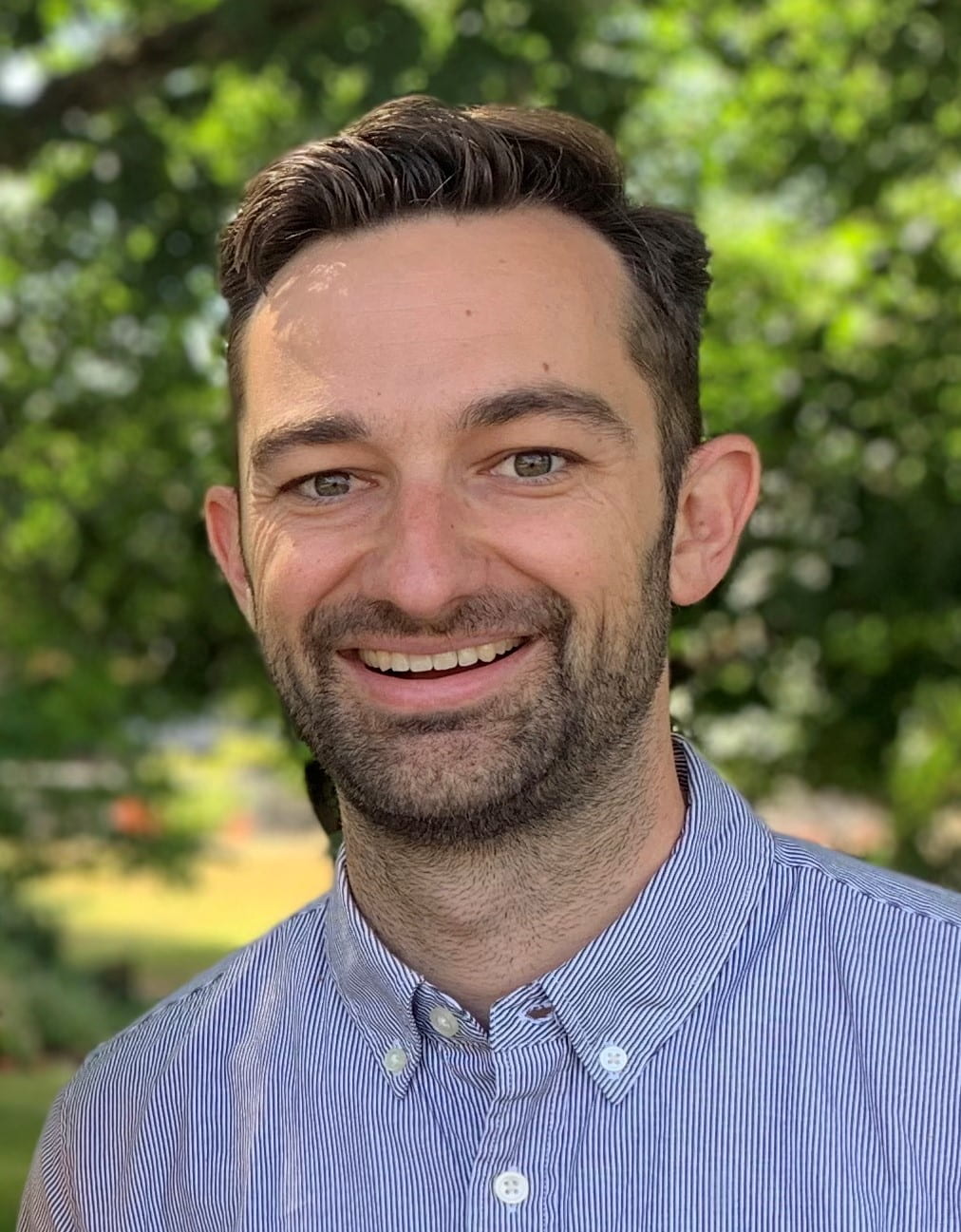
Dr. Taylor McHolm is the Director of the Student Sustainability Center at the University of Oregon. In this role, Taylor develops student leaders, helps facilitate student sustainability projects, and develops programming to meet student needs on campus. He received his PhD from the University of Oregon’s interdisciplinary Environmental Science, Studies, and Policy program, with a focal department of English. His published research addresses representations of environmental justice and the racial components of the Anthropocene. In all areas, his work and research prioritize the intersections of sustainability, environmental justice, social equity, and cultural production. Dr. McHolm is leading the Just Futures Environmental Justice Fellowship, which supports 10 students to develop as environmental justice leaders and help their communities through community-led service projects.
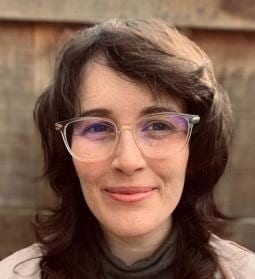
Kate Thornhill is the UO’s Digital Scholarship Librarian. After studying library and information science at Simmons University, she works in the UO Libraries as a hybrid librarian, archivist, and technology specializing in digital stewardship and information science. Kate is leading the digital project build for the Healers project overseeing ethical data curation and preservation practices, user experience, web design, and digital platform, tools, and methodology selections and implementations. Outside of JFI, Kate supports the entire UO with digital humanities project consultations and sharing knowledge about building digital collections and archives, oral histories, and interactive digital exhibits. She loves talking about metadata, technology obsolescence, and how to build open digital scholarship projects with an eye on digital preservation. Before joining UO in 2018, Kate was the Interim Director of Curatorial Services at the Oregon Health and Sciences University Library, overseeing special collections and archives and digital assets management programming. She was also the Digital Scholarship Librarian for Lesley University’s College of Art & Design Library in Cambridge, Massachusetts where she led the art library’s digital library services. Learn more about Kate’s recent work on the UO Libraries DREAM Lab website and her UO library faculty page.
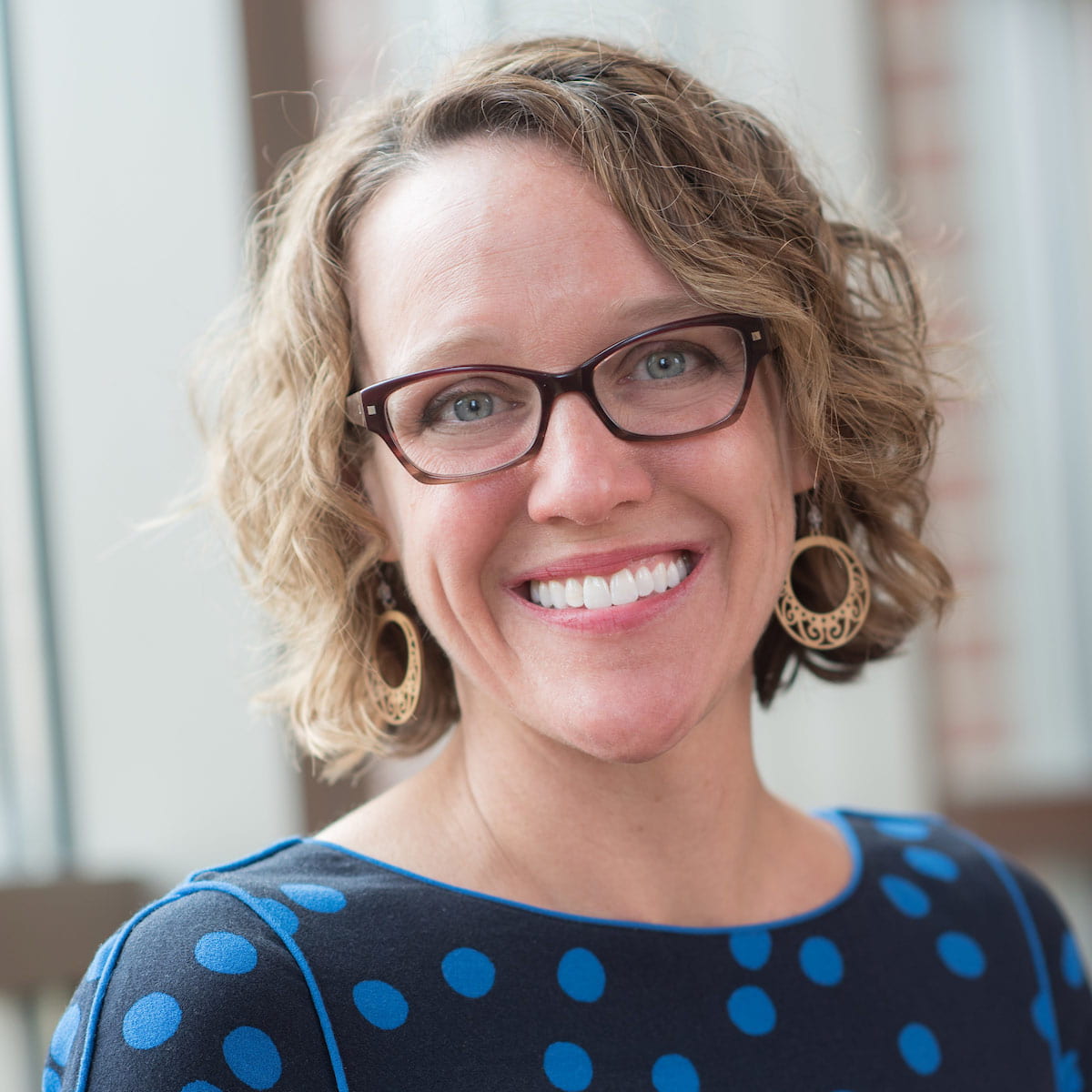
Jennifer Ladino, Ph.D., is a Professor of English and core faculty in Environmental Science at the University of Idaho, where she co-directs the Confluence Lab and is a co-PI on the Pacific Northwest Climate Justice Atlas. Ladino’s expertise is in American literature, emotion/affect studies, public lands in the U.S. West, and climate change fiction. She is the author of Memorials Matter: Emotion, Environment, and Public Memory at American Historical Sites (2019) and Reclaiming Nostalgia: Longing for Nature in American Literature (2012), and co-editor of Affective Ecocriticism: Emotion, Embodiment, Environment (2018). Ladino’s work has been supported by the National Endowment for the Humanities, the J. William Fulbright Program, the Charles Redd Center for Western Studies, and the Idaho Humanities Council, and she has been a co-PI on a project funded by the National Science Foundation.
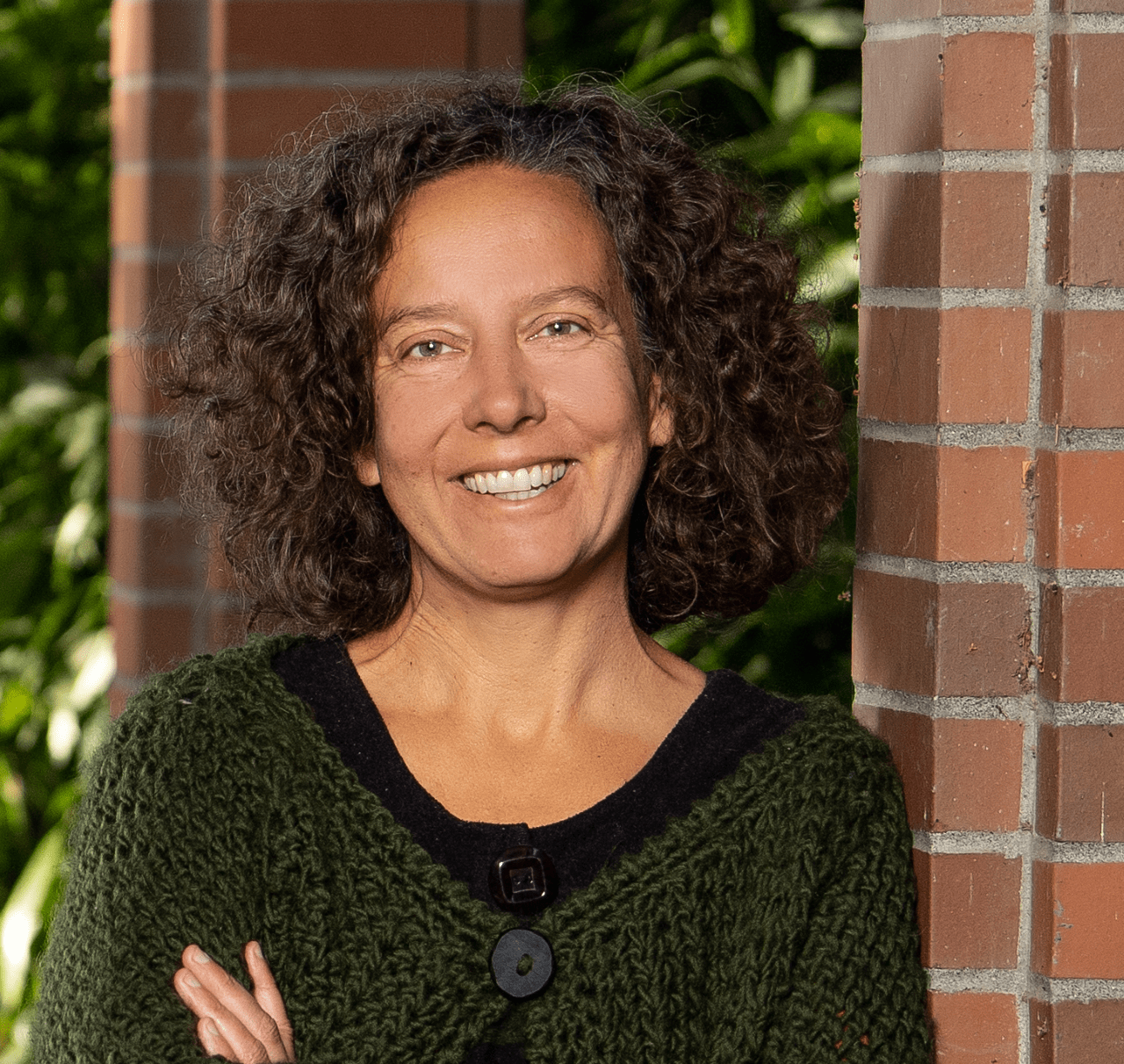
Eunice Blavascunas, Ph.D., is an Associate Professor of Anthropology and Environmental Studies at Whitman College. Her publications include the Foresters, Borders and Bark Beetle: The Future of Europe’s Last Primeval Forest (Indiana University Press 2020) and many chapters and articles on the politics of forestry and nature conservation in eastern Poland. Blavascunas is a recipient of the Rachel Carson Fellowship at the Rachel Carson Center for Environment and Society, a Switzer Environmental Leadership Fellow and has held a research fellowship at the Leibniz Institute for East European Culture and History in Leipzig, Germany. She received her doctorate in cultural anthropology from the University of California Santa Cruz. Her research in progress looks at rewilding practices across different sites in Europe and North America, considering how animals and people cross boundaries and borders, figuratively and literally.
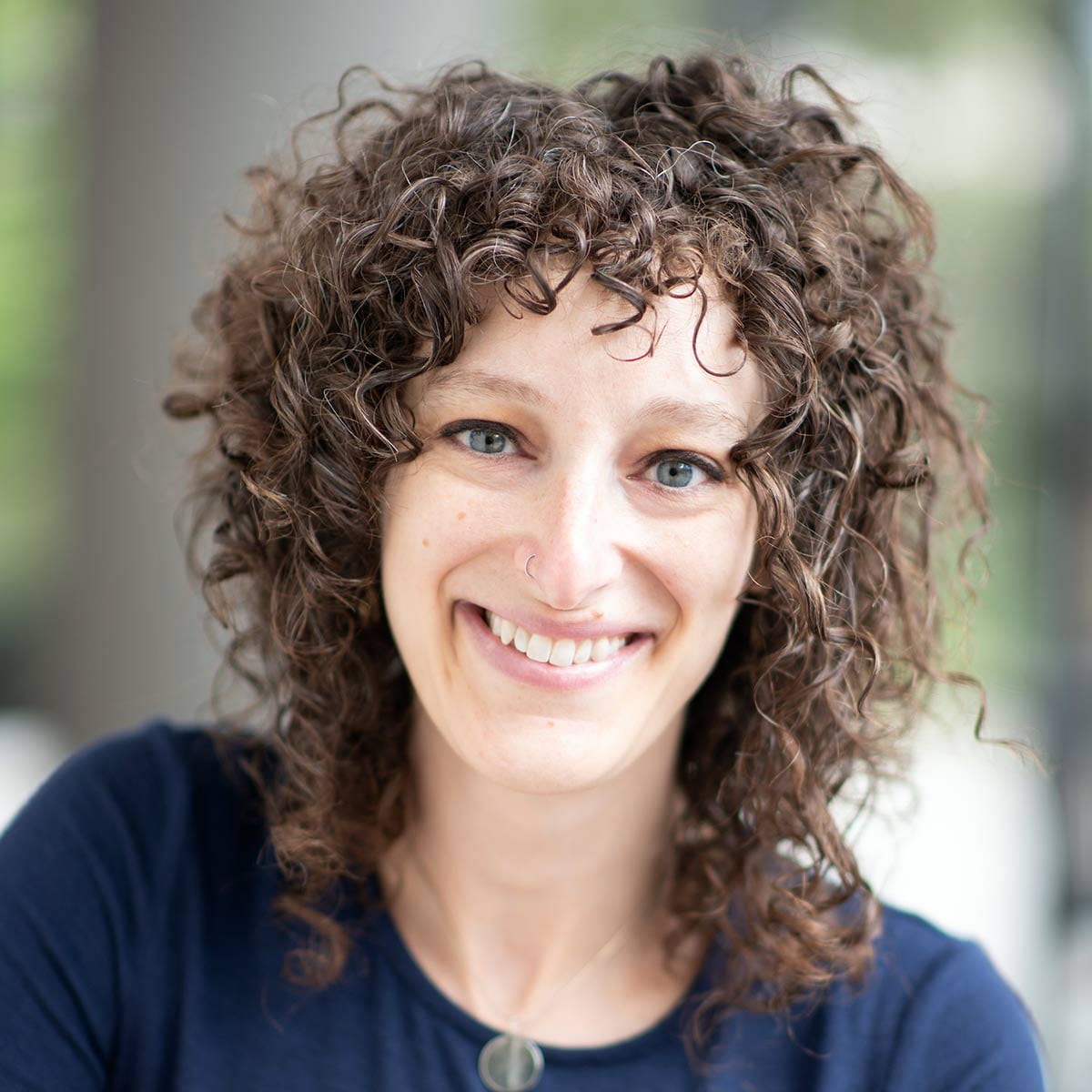
Erin James is Associate Professor of English and Affiliate Faculty of Environmental Science at the University of Idaho, and her work focuses on the role that storytelling and narrative can and should play in response to global environmental crisis, especially in terms of the development of cross-cultural and transnational communication and policy. Her most recent book, Narrative in the Anthropocene, is forthcoming from Ohio State University Press in April 2022. The Storyworld Accord: Econarratology and Postcolonial Narratives (University of Nebraska Press 2015) won the International Society for the Study of Narrative’s 2017 Perkins Prize for Best Book in Narrative Studies and was a finalist for the Association of the Study of Literature and Environment’s Ecocriticism Book Award that same year. She has published essays in DIEGESIS, SubStance, the Journal of Narrative Theory and Poetics Today, as well as Environment and Narrative: New Directions in Econarratology, which she co-edited with Eric Morel (Ohio State University Press 2020). She a Co-Founder and Co-Director of the Confluence Lab (https://www.uidaho.edu/class/english/confluence).
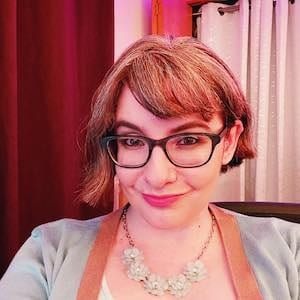
Franny Gaede is the Director of Digital Scholarship Services at UO Libraries. She provides leadership and support for digital scholarship, digital collections, digital preservation, scholarly communication, and library-led open access publishing. She earned her MSIS and BA in History at the University of Texas at Austin and previously worked as the Scholarly Communication Librarian for Butler University. Franny’s professional interests include open access and social justice, digital scholarship project sustainability and preservation, and applications for digital scholarship work in research and teaching. She’s putting her interests and expertise to work for JFI as the Libraries’ team lead for the Healers project and the PNW Atlas of Essential Work.
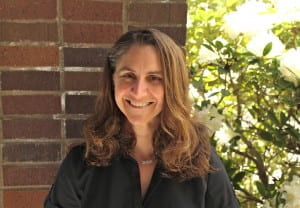
Kathy Lynn is a Faculty Research Assistant in the Environmental Studies Program. Kathy coordinates the Pacific Northwest Tribal Climate Change Project, a collaborative project at the University of Oregon with support from the USDA Forest Service Pacific Northwest Research Station, the Affiliated Tribes of Northwest Indians, and the Bureau of Indian Affairs. She co-directs the University of Oregon Climate Change and Indigenous Peoples Initiative with Mark Carey. Kathy is working with JFI’s Indigenous Lifeways initiative.
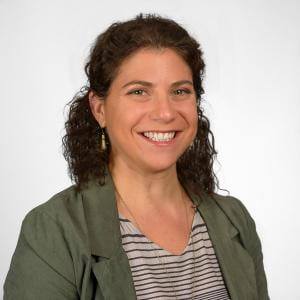
Joanna Merson is a Cartographic Developer in the University of Oregon Department of Geography InfoGraphics Lab. Her primary duties are to design visualizations and web mapping products to support academic research activities and to teach Web Mapping courses. With a B.Sc. in Geomatics (Combined Geography and Computer Science) and an M.A. in Geography, her skills include a foundation in geographic principles, data modeling, and user-driven visualization techniques. Joanna also gained experience with web-app interface design and testing while working within the private sector with GIS industry leaders Esri and its partner Latitude Geographics. Joanna uses this expertise to contribute a balance of user and data-driven visualization techniques to collaborative research projects.
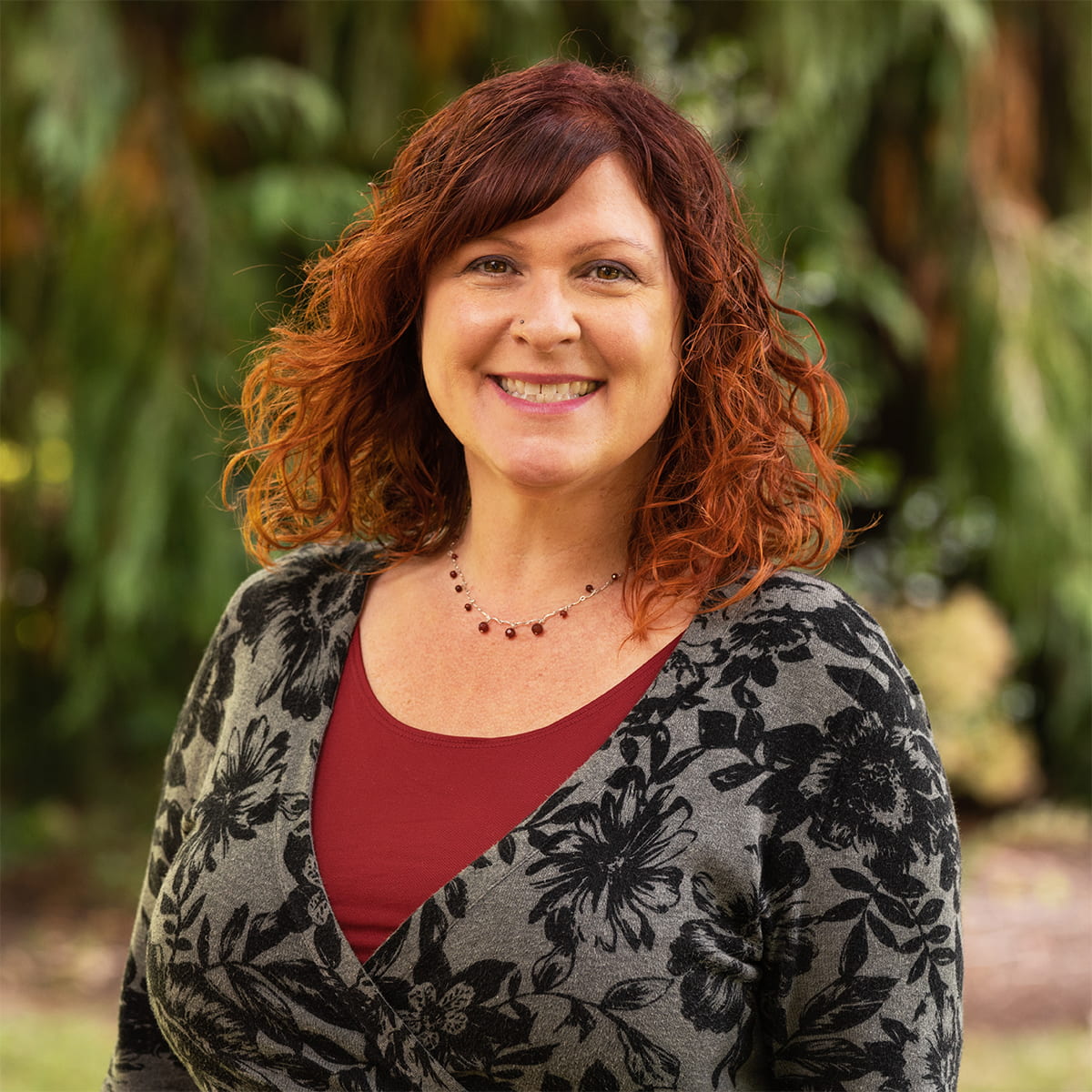
Alethea Steingisser is the cartographic production manager in the InfoGraphics Lab at the University of Oregon where she has worked since 2005. She works with InfoGraphics staff and students on the conceptualization and design for a wide variety of cartographic projects in the Lab, and is well-recognized for her roles as lead cartographer and production manager on multiple award-winning atlases including the The Atlas of Yellowstone (1st and 2nd editions); Wild Migrations: Atlas of Wyoming’s Ungulates; and Archaeology and Landscape in the Mongolian Altai. Alethea is drawn to cartography because it combines her interests in art and science, and because the dynamic nature of the field requires continual learning.
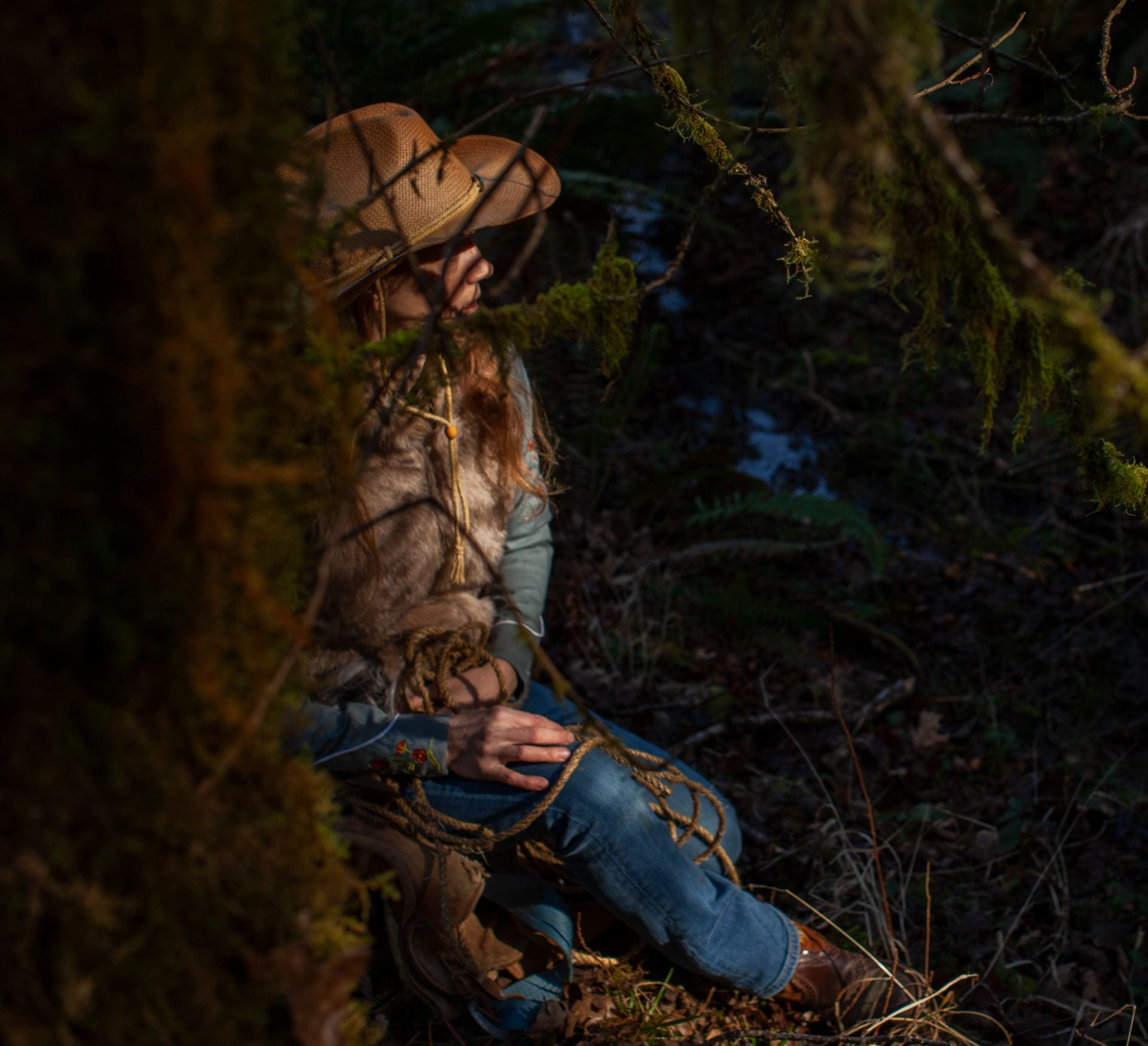
Karin Bolender (aka K-Haw Hart) is an artist-researcher and founder of an experimental ecological art platform called the Rural Alchemy Workshop (R.A.W.), based in Philomath, Oregon since 2013. R.A.W. projects seek to co-compose “untold” stories with/in shadowy meshes of mammals, plants, microbes, and others, through time-based performance, writing, new media, and experimental book arts. In 2020 3Ecologies/punctum books published The Unnaming of Aliass. Bolender is also a co-editor of The Promise of Multispecies Justice (Duke, 2022). Engaging methods across contemporary art, geopoetics, and environmental humanities, Bolender invites reckonings within rural/urban frictions and complicities in the Pacific Northwest, alongside anticolonial energies and propositions from interwoven academic, artistic, activist, and other fields of inquiry. Bolender is a Mellon Foundation Postdoctoral Fellow with the Center for Environmental Futures.
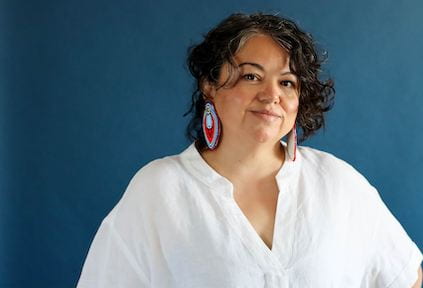
Dr. Yesenia Navarrete Hunter is an Assistant Professor of History at Heritage University in Washington State, and a Postdoctoral Fellow at the University of Oregon as part of the Just Futures Initiative in the Department of Indigenous, Race, and Ethnic Studies program. Dr. Hunter was born in Mexico and came to the U.S. as a child. She is the daughter of Guadalupe Marquez and Alberto Marquez, now of Wapato, Washington, where she grew up as a migrant farm worker. Her current work, called “Entangled Histories of Land and Labor,” centers on the braided histories of immigrants and Native Americans in the Pacific Northwest. By looking at movement, migration, and material practices, Yesenia looks at how groups made places of belonging and crafted opportunities for new relationships. Her work is guided by the question: How do people make place and create rhythms of belonging in fragile spaces? Her artistic and publicly engaged work called “Fingerprints and Landscapes” explores these same questions in community through art and music. The aesthetics of her work are guided by elements of place, memory, embodied practices, and relationality.
Dr. Hunter is a scholar and an artist. Her work is fueled by her role as a mother and is deeply influenced by the material practices of the music, poetry, and community building elements of the practice of the transnational movement of fandango.
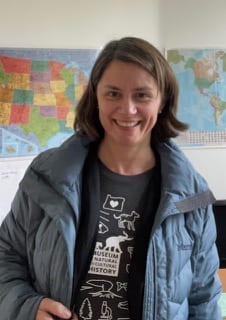
Eleonora Redaelli is an Associate Professor at the University of Oregon’s School of Planning, Public Policy, and Management, specializing in American cultural policy. With a Ph.D. from The Ohio State University, she brings experience from both public and private cultural institutions in Italy. She has taught and coordinated the Arts Management program at the University of Wisconsin-Stevens Point and has served as a visiting professor at prestigious institutions like American University (Rome), Shandong University (Jinan, China), University of International Business and Economics (Beijing), and as a visiting scholar at Tshwane University of Technology (Pretoria, South Africa), University of Ottawa (Canada), Politecnico di Milano (Italy), and Aarhus University (Denmark). Her research has been published in renowned journals such as the International Journal of the Arts in Society, City, Culture and Society, Urban Affairs Review, Cultural Trends, Journal of Planning Education and Research, Urban Geography, Journal of General Education, Policy Studies, Journal of American Planning Association, and Cities. In collaboration with Jonathan Paquette, she co-authored the book Arts Management and Cultural Policy Research (2016) and authored the monograph Connecting Arts and Place: Cultural Policy and American Cities (2019). She also edited the volume Visiting the Arts Museum: A Journey Toward Participation (2023), published by Palgrave. In recognition of her research contributions, she was awarded the UO Faculty Excellence Award in 2019.


